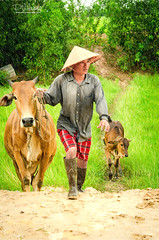
- Read An Opinion On:
- Cattle Yards
Agriculture has always been a crucial sector of the economy, providing food and raw materials for the global population. As the demand for agricultural products continues to increase, the need for efficient and cost-effective farming practices also grows. One solution that farmers are turning to is steel buildings. These structures offer numerous benefits, including durability, affordability, versatility, and more. Check out the top five advantages of steel farm buildings.
Durability
One of the most significant advantages of steel farm buildings is their durability. Steel is a sturdy and robust material that can withstand harsh weather conditions, including heavy snow, strong winds, and even earthquakes. It is resistant to termites, fire and other pests that can damage typical wooden structures. Steel buildings are built to last and can endure for decades with minimal maintenance.
The durability of farm buildings makes them an excellent investment for farmers. These structures offer long-term cost savings, as they require less upkeep than other types of buildings. They are also less likely to experience costly damage that could impact a farmer’s bottom line.
Affordability
Another significant advantage of steel buildings is their affordability. These structures are more cost-effective to construct and maintain than traditional wooden ones. The materials used to build steel buildings are typically less expensive than wooden ones, requiring less labour.
Steel buildings are also energy-efficient, which can result in long-term cost savings for farmers. Steel’s insulating properties aid in regulating the temperature in the building, reducing the need for heating and cooling systems. Additionally, steel buildings can be designed to maximize natural light, further reducing energy consumption.
Versatility
Steel buildings are incredibly versatile, making them ideal for various agricultural applications. They can be customized to suit specific farming needs, including storage for equipment, livestock housing, and processing facilities. Steel buildings can also accommodate livestock types, such as dairy cows, poultry, and pigs. The flexibility of farm buildings makes them an excellent option for farmers looking to expand or diversify their operations.
Sustainability
Steel buildings are also an environmentally sustainable option for farmers. Using steel in construction reduces the need for wood, which helps preserve forests and other natural habitats. Also, steel is recyclable, meaning the buildings can be disassembled, reused, or repurposed when no longer needed. Steel buildings are also energy-efficient, as we mentioned earlier. This reduces the need for fossil fuels to power heating and cooling systems, lowering carbon emissions and helping to combat climate change.
Safety
Finally, steel buildings offer superior safety and security compared to other structures. Steel is incredibly strong and resistant to damage, making it difficult for intruders to break in. Also, These buildings are designed to meet strict safety standards, ensuring they can withstand natural disasters and other emergencies. The safety of steel farm buildings is particularly crucial when it comes to livestock housing. Animals require safe and secure environments to thrive; steel buildings provide this. They resist pests and predators, reducing livestock’s risk of injury or disease transmission.
Conclusion
In summary, steel farm buildings offer numerous advantages, making them an excellent investment for farmers. Their durability, affordability, versatility, sustainability, and safety make them an ideal solution for various agricultural applications. Whether farmers want to expand their operations or improve existing infrastructure, farm buildings are an excellent choice that can provide long-term cost savings and benefits. Farmers can ensure optimal productivity, profitability, and sustainability for their farming operations by investing in farm buildings.